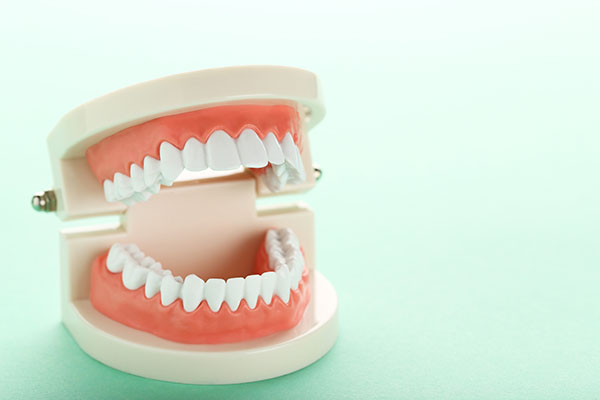 When natural teeth are no longer healthy, it is occasionally necessary to get dentures. Although it is not always pleasant, adjusting to new dentures does not have to be traumatic. Understanding the facts about dentures can help dispel common myths that may cause anxiety and help make the transition to using this type of artificial teeth go smoothly.
When natural teeth are no longer healthy, it is occasionally necessary to get dentures. Although it is not always pleasant, adjusting to new dentures does not have to be traumatic. Understanding the facts about dentures can help dispel common myths that may cause anxiety and help make the transition to using this type of artificial teeth go smoothly.
4 common denture myths and uncovering the truth behind them
Dispel these popular rumors and start adjusting to new dentures quickly.
1. Dentures make it difficult to eat
There are two reasons people find it difficult to eat with dentures. The first is the dentures do not fit properly. When dentures are not fit precisely to the teeth, it can cause them to slip or become loose while eating. The second reason is people try to eat hard or sticky foods too soon after getting dentures before the apparatus has had time to completely contour to the shape of the mouth. Start by taking smaller bites of soft food and work up to the foods that are more difficult to chew. Use a small dab of denture adhesive to stabilize them if necessary.
2. Plaque does not build up on dentures
Dentures are not only vulnerable to plaque buildup but also to stains and odors. Dentures should be soaked and rinsed regularly, as well as brushed with a denture toothbrush. It is also important to clean the following areas of the mouth with a soft-bristled toothbrush or gauze:
- Inside of the cheeks
- Palate
- Tongue
- Any remaining natural teeth
The abrasives in toothpaste can damage dentures, so avoid using them during the cleaning process. If the mouth is not cleaned regularly, bacteria from food and beverages can still damage the mouth.
3. Speech or a smile will be affected by dentures
A dental professional will typically match the new dentures to any remaining teeth so the look is as natural as possible. Because the dentures will not match the missing teeth completely, the teeth can look slightly different than the natural ones being replaced. This difference is typically subtle and should not noticeably impact speech or a smile.
4. Dentures should feel comfortable quickly
Getting even a small filling in a tooth can require an adjustment period. Replacing one or more teeth will feel different for a while. The dentures will need time to contour completely to the shape of the mouth and gums, and the tongue and gums will have to get used to the feel of the new dentures. Although a short adjustment period is to be expected, it should not take longer than two weeks for new dentures to feel natural.
Conclusion
Although adjusting to new dentures may not happen overnight, it can be a smooth transition if a patient is well-prepared for the treatment plan. Understanding the truth behind common myths can help people feel more comfortable with both the procedure of getting new dentures as well as when going through the initial adjustment period.
Request an appointment or call Family Choice Dental at 505-634-5657 for an appointment in our Albuquerque office.
Related Posts
Adjusting to new dentures is a process that usually takes several weeks. You must learn how to eat, speak, and adapt to the feel of having them in your mouth. Though every effort is made to have your dentures fit correctly when they are made, you are likely to need to visit your dentist for…
If you are adjusting to new dentures, you are far from alone. The ADA estimates that 120 million Americans are missing teeth, with 36 million missing all of them. Even those who have used dentures before may need replacements that they must get accustomed to. A major part of the adjustment is learning what to…
Dentures are a popular solution for individuals who are missing any number of natural teeth. These prosthetic teeth can dramatically improve oral function and appearance, though first-time wearers report various challenges adjusting to new dentures that dentists can address.Most new denture wearers require about one month to adjust to the sensations accompanying a foreign substance…
